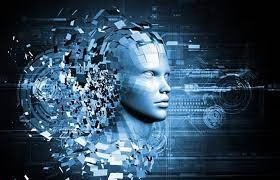
What are the types of AI?
The following are a few of the types of AI.
AI allows computers to perform tasks that would normally require a human being. Computers powered by AI “learn” from “experience”, and they improve over time by learning from new information.
There are various capabilities within AI, as I explained in “AI development life cycle: explained”. These capabilities are as follows:
Machine Learning (NL):
This capability includes deep learning, supervised learning algorithms, and unsupervised learning algorithms.

Get a complimentary discovery call and a free ballpark estimate for your project
Trusted by 100x of startups and companies like
Natural Language Processing (NLP):
NLP includes content extraction, classification, machine translation, etc.
Vision:
Image recognition, machine vision, etc. fall within this capability.
Speech:
This capability includes speech-to-text and text-to-speech.
Expert systems, planning, robotics are the other key AI capabilities.
There are four categories or types of AI, and these are as follows:
Reactive AI:
Systems powered by reactive AI can‘t deal with the past or future, and they can only accomplish the present task at hand.
Among the various types of AI, reactive AI involves the computer system acting on its direct perception of the world. Reactive machines can’t have a concept of the past. Artificial intelligence systems of this type can’t have memories of what happened earlier.
AI systems of this kind can’t form an idea about the world. They will respond to a particular situation the same way every time. Such a system focuses on specific tasks, and it chooses the most optimal one from the available possibilities.
IBM had built Deep Blue, a chess-playing supercomputer. This is an example of reactive machines from the late 1990s. It had defeated Garry Kasparov, the international grandmaster in a game of chess.
AlphaGo from Google is a more recent example. It had defeated human Go experts. AlphaGo uses neural networks. Neural networks are parts of deep learning, a subset of machine learning. Neural network algorithms are organized like the human brain.
Hire expert developers for your next project
1,200 top developers
us since 2016
Limited memory AI:
Systems equipped with limited memory AI can refer to events from a short time ago, and self-driving cars are a good example of this.
Limited memory AI is a type of AI system that can look up to events in the past. They can do that up to a limited extent. They also use pre-programmed representations of the world.
Unlike human beings, these AI systems can’t save the events from the past in their repository of lessons learned. Self-driving cars are examples of these types of artificial intelligence systems.
Self-driving cars have elements like traffic lights and lane markings in their pre-programmed representations of the world. Additionally, they observe the direction and speed of other vehicles.
Reactive AI and limited memory AI are called weak AI or narrow AI. Weak AI refers to AI systems that can perform a predefined set of functions. It’s also known as artificial narrow intelligence.
All AI systems currently available are weak AI systems. Furthermore, AI capabilities like natural language processing (NLP), computer vision, etc. are weak AI too.
Theory of Mind AI:
Currently, under research and development, systems equipped with the Theory of Mind AI can understand the emotions of people and other AI-powered systems.
Theory of Mind AI is not commercially available yet. AI research teams are still researching about it.
The human mind understands the emotions and motives of other people or animals. This is called the “Theory of Mind”.
This augments human intelligence and enables human beings to work together with other people. “Theory of Mind” enabled human beings to form societies.
Hire expert developers for your next project
AI researchers are trying to build Theory of Mind AI, where AI systems will have this human capability. Theory of Mind AI systems will understand our emotions and motives.
Subsequently, such systems will change their approach to their work based on this understanding. That would enable Theory of Mind AI systems to work collaboratively with human beings. It’s not known when such AI systems will be built.
Self-Aware AI:
Systems powered by Self-Aware AI will be able to understand themselves, however, this category of AI is still at an early stage of research.
Self-aware AI systems are in the stage of research. Such systems will go beyond the Theory of Mind AI systems. Not only will they understand the emotions and motives of others but they will be self-aware.
They will understand their own emotions and motives. It’s understandably hard to build computer systems with such consciousness.
Theory of Mind AI and self-aware AI fall within the “strong AI” category. Strong AI is also called “artificial general intelligence”, and it’s in the research stage. It’s not clear whether or when such AI systems can be built.
FAQS
Artificial intelligence or AI refers to the ability of a computer to do undertake tasks that are usually done by humans because they require human intelligence and discernment
There are four primary AI types: reactive, limited memory, theory of mind, and self-aware.
Artificial intelligence can be used to help automate just about any process that is undertaken digitally. However, current AI systems are very limited and require a large amount of development in order to replace humans. Current AI systems are used in everything from examining X-Rays in healthcare to helping suggest products on eCommerce sites such as Amazon.


